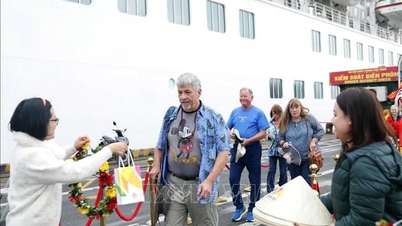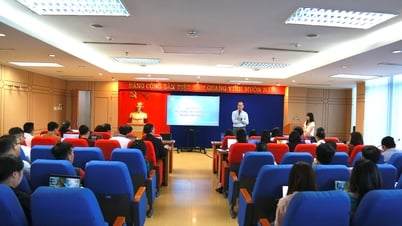
Data from more than 31,000 travelers from 34 countries and territories, reflecting the views, priorities and impact of sustainable travel on consumer decisions, is presented in the 2024 Sustainable Travel Report by online travel platform Booking.com.
Of these, 96% of Vietnamese tourists affirm that sustainable tourism plays an important role in their choice. However, many tourists feel burdened by the significant challenges that choosing sustainable tourism brings.
Booking.com Country Manager for Vietnam, Varun Grover, said that up to 40% of travelers expressed fatigue with hearing about climate change recently. These findings show that sustainable travel is facing challenges and the community needs to speak up to ensure it becomes a top priority for many travelers.
Many tourists even believe that environmental damage caused by tourism is irreversible and that individual choices do not make a difference.
In fact, 56% of tourists still feel guilty about choosing forms of tourism that have a negative impact on the environment, while 21% decide to act in a more sustainable way because they believe it is the right decision.
Notably, 80% of Vietnamese tourists said they expect the destinations they visit to improve in terms of service quality and care for the environment after they leave. 43% of tourists believe they can have a positive impact on social issues related to the tourism industry.
The challenge of sustainable tourism does not only come from tourists but also from destinations. If destinations do not preserve and degrade the environment, tourists will not return. In the new competition, building quality and sustainable destinations is a priority today.
However, the path to sustainable tourism development goes against the goals of welcoming visitors and economic growth of localities. An equivalent proportion (43%) also believes that solidarity and joint efforts of the community are the most important keys to solving economic challenges as well as developing sustainable tourism.
Meanwhile, more than half of survey respondents (51%) believe that tourism service providers hold effective solutions to environmental problems. Therefore, calling for community action to promote sustainable development in the tourism industry remains a top priority.
Mr. Varun Grover believes that there is a need for consensus and cross-sectoral collaboration that can bring about significant positive changes towards a brighter future for sustainable tourism.
The concept of sustainable tourism was first mentioned in 1992, at the United Nations Conference on Environment and Development in Rio de Janeiro.
According to the World Tourism Organization (UNWTO), sustainable tourism is tourism that minimizes costs and maximizes the benefits of tourism for the natural environment and local communities and can be carried out over the long term without adversely affecting the resources on which it depends.
Source



![[Photo] The coffin of former President Tran Duc Luong arrives in Quang Ngai](https://vphoto.vietnam.vn/thumb/1200x675/vietnam/resource/IMAGE/2025/5/25/1f1aca0d92ab47deae07934e749b35e6)
![[Photo] Funeral of former President Tran Duc Luong in Quang Ngai](https://vphoto.vietnam.vn/thumb/1200x675/vietnam/resource/IMAGE/2025/5/25/ccf19a3d8ea7450bb9afe81731b80995)
![[Photo] Welcoming ceremony for Prime Minister Pham Minh Chinh and his wife on an official visit to Malaysia](https://vphoto.vietnam.vn/thumb/1200x675/vietnam/resource/IMAGE/2025/5/25/dc30203c3ae24da3990266ec3b29bb2d)

























































































Comment (0)